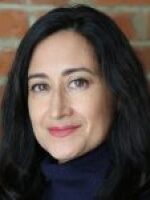The prosecutor in Lamar Johnson’s 1995 murder trial told a St. Louis courtroom on Wednesday that he would have never brought the case in the first place without the testimony of an eyewitness who has since recanted.
“I didn’t have any evidence,” said then-assistant St. Louis Circuit Attorney Dwight Warren.
Wednesday was the third day of a hearing on Circuit Attorney Kim Gardner’s motion to set aside Johnson’s conviction, which she filed in August.
The decision lies in the hands of 22nd Circuit Court Judge David Mason.
Already, the judge has heard from James Howard, a convicted murderer serving a life sentence who testified on Monday that he and a now-deceased man named Philip Campbell — not Johnson — shot and killed Marcus Boyd on Oct. 30, 1994.
Campbell pleaded guilty to voluntary manslaughter in 1995 and received a sentence of seven years, which he served. Johnson pled not guilty to the same crime and was sentenced to life without parole.
Mason also heard from Greg Elking, who was sitting on Marcus Boyd’s front porch in South St. Louis when two masked men shot and killed Boyd.
Elking was Warren’s key witness in the 1995 case, but he testified this week that police detectives “pressured” and “bullied” him into identifying Johnson from a lineup.
At the end of the second day, after listening to Elking’s testimony, Mason gave Johnson and his supporters a ray of hope.
“I’ve already reached the fact conclusion that the testimony of Elking was overly suggestive,” Mason said. “It’s almost a textbook case of suggestive identification.”
While on the stand, Warren defended his actions and answered Mason’s numerous questions about how he prosecuted the case — including why he didn’t disclose certain information to Johnson’s public defender.
Among the withheld information was more than $4,000 in witness protection payments that Elking received after he picked Johnson out of a line up.
Warren also didn’t disclose the fact that he allowed Boyd’s family to come in and talk to Elking while at his office.
“I’m sitting here wondering, would it have been your practice to expose your key witness to people who are emotionally involved with the victim— and not make the defense counsel aware of that particular interaction?” Mason asked Warren.
“It may have been,” Warren replied, adding that he didn’t see a court rule against it.

At the time, Elking also had outstanding warrants for some parking tickets. Warren told the city counselor, who handled municipal violations, that he didn’t want Elking to get picked up and put in jail alongside Johnson, Warren testified.
The city counselor cleared the tickets, but Warren said he didn’t directly ask him to do that and it wasn’t something he promised Elking.
Johnson’s then-public defender, David Bruns, also testified Wednesday and confirmed he never received any information about the payments Elking received or the clearing of his traffic tickets.
If he had the information, Bruns said he would have used it.
“It’s motive,” he said. “You’re looking for what seems to be an impartial witness.”
Warren said he told Bruns that Elking was being relocated, and Bruns should have assumed that it came with a cost.
But Bruns said that is “a different thing that someone has been relocated from where they live to the fact that their bills are being paid.”
Warren’s case against Johnson became stronger after a jailhouse snitch, William Mock, said he overheard Johnson talking about killing Boyd while they were in jail together.
Warren wrote a letter to the parole board explaining that Mock was a witness in a murder case and giving him parole would help Warren protect Mock against potential attacks. But Warren held firm that he didn’t offer Mock any deal to testify against Johnson.
Under a 2021 state law, if a prosecutor files a motion to vacate or set aside a judgment, the attorney general’s office could appear, question witnesses and make arguments at the hearing.
Attorneys representing the attorney general’s office in this case are arguing that Johnson is guilty.
During cross examination of Warren, Assistant Attorney General Tristin Estep boasted Warren’s credentials as a prosecutor who served more than 40 years and had assessed the credibility of thousands of witnesses before talking to Elking.
Estep asked Warren if he had felt confident of Elking’s identification of Johnson at that time.
Before Warren could answer, Mason said, “hold on.”
“When [Elking] made his identification, he told you and the officers it was based upon him looking at the eyes because that was all he could see, isn’t that correct?” Mason asked Warren.
“I believe so,” Warren said.
It was at 9 p.m. and dark, Mason said.
“And did he or did he not tell you that all of this happened…within seconds?” the judge asked Warren.
Warren said yes.
“And that’s what you decided was sufficiently reliable to seek a murder conviction?” Mason said.
Warren replied, “To take it to a jury, yes sir.”
Tomorrow, the circuit attorney’s team said they will call Johnson and the witness who was with Johnson that night. The attorney general’s team said they plan on calling the police detective and Boyd’s girlfriend, who was upstairs at the apartment when he was killed.
This story was originally published by the Missouri Independent, part of States Newsroom, a network of news outlets supported by grants and a coalition of donors as a 501c(3) public charity. Missouri Independent maintains editorial independence.




